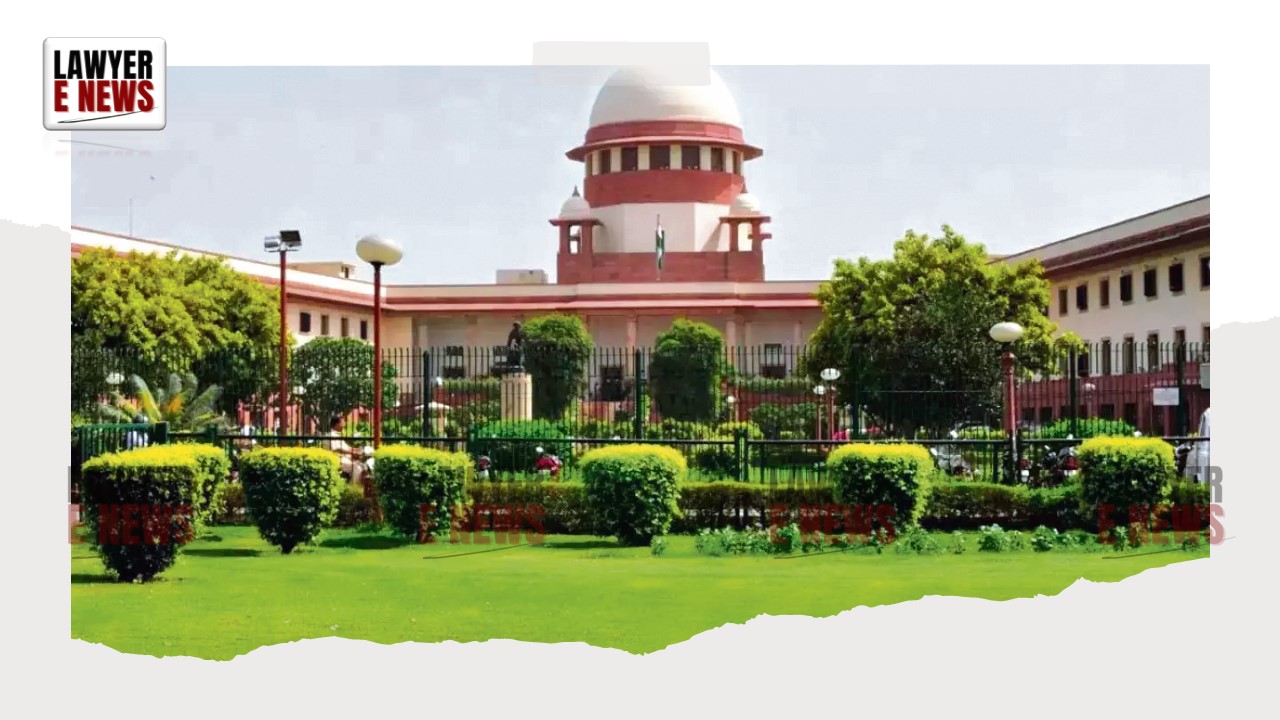-
by Admin
15 February 2026 5:35 AM



Supreme Court of India set aside a cryptic order of the Madhya Pradesh High Court in Geeta Dubey & Ors. v. United India Insurance Co. Ltd. & Ors. The High Court had overturned a Motor Accident Claims Tribunal (MACT) award of ₹50,41,289/- to the family of Chakradhar Dubey, who was killed in a 2018 road accident. The Supreme Court restored the MACT’s award, criticizing the High Court for failing to carefully evaluate evidence and misapplying the evidentiary standard.
The judgment clarifies key legal principles, including the evidentiary threshold in motor accident cases, the appellate court's duty in first appeals, and the burden of proof in allegations of collusion by insurers.
The case arose from a fatal motor accident on June 18, 2018, near Maihar, Madhya Pradesh. Chakradhar Dubey, a postal department official, was traveling in a car when a truck (bearing registration No. MP-19-HA-1197) allegedly hit the vehicle from behind, causing severe injuries. Despite treatment, Dubey succumbed to his injuries on June 28, 2018. His wife and son filed a claim before the MACT, seeking compensation of ₹59,30,000/-.
The MACT awarded ₹50,41,289/- after holding the truck driver negligent, but the High Court overturned the award, claiming there was insufficient proof of the truck's involvement. Aggrieved, the claimants approached the Supreme Court.
The Supreme Court strongly criticized the High Court for summarily reversing the MACT’s detailed findings without evaluating evidence such as the First Information Report (FIR), eyewitness testimonies, and police seizure records. The Court emphasized that an appeal under Section 173 of the Motor Vehicles Act, 1988 is akin to a first appeal under the Civil Procedure Code, requiring detailed scrutiny of facts and law.
The Court noted: “The High Court is obligated to carefully marshal oral and documentary evidence before reversing the findings of the MACT. The cryptic and summary order demonstrates judicial abdication.”
Reaffirming the principle that motor accident claims are governed by preponderance of probability rather than the stricter criminal law standard of "beyond reasonable doubt," the Supreme Court relied on its decisions in Bimla Devi v. Himachal Road Transport Corporation (2009) and Sajeena Ikhbal v. Mini Babu George (2024). The Court highlighted that the MACT’s findings were based on:
The FIR, which mentioned the accident's time, place, and injuries.
Eyewitness testimony (PW-2), corroborated by police investigations.
The seizure of the offending truck after a notice under Section 133 of the Motor Vehicles Act.
The Court emphasized that claimants in motor accident cases are not expected to prove their case to the level of criminal certainty.
The insurer alleged that the claimants colluded with the truck owner to falsely implicate the vehicle. However, the Supreme Court found no evidence to support this claim. The insurer neither lodged complaints with senior police officials nor sought judicial remedies to question the investigation.
Supreme Court held: “Mere allegations without substantiation cannot displace the claimants’ case. The insurer, having set up a plea of collusion, failed to discharge its burden of proof.”
The insurer also challenged the multiplier used by the MACT to calculate compensation, arguing that the deceased was 58 years old and a multiplier of 9 should have been applied instead of 11. The Supreme Court dismissed this contention, noting that the MACT relied on the deceased’s age as recorded in the post-mortem report (55 years), consistent with the claimants' pleadings. The insurer failed to provide contrary evidence.
Preponderance of Probability: The Supreme Court reiterated that motor accident claims require proof on a preponderance of probability, not beyond reasonable doubt. Circumstantial evidence and corroborative testimonies suffice to establish claims.
Role of Appellate Courts: Appellate courts must engage in detailed fact-finding and cannot summarily overturn lower court findings, particularly in cases involving bereaved families.
Burden of Proof on Collusion: Insurers must substantiate allegations of collusion with evidence. Baseless allegations cannot override police investigations and charge-sheets.
Multiplier in Compensation: Findings on the deceased’s age and the corresponding multiplier must be supported by evidence. In the absence of contrary proof, MACT’s determination is upheld.
The Supreme Court allowed the appeal, restored the MACT’s award, and quashed the High Court’s judgment. The decision underscores the importance of meticulous appellate review in motor accident claims and reinforces the principle that claimants must prove their case on the touchstone of probability, not criminal certainty.
Date of Decision: December 18, 2024
